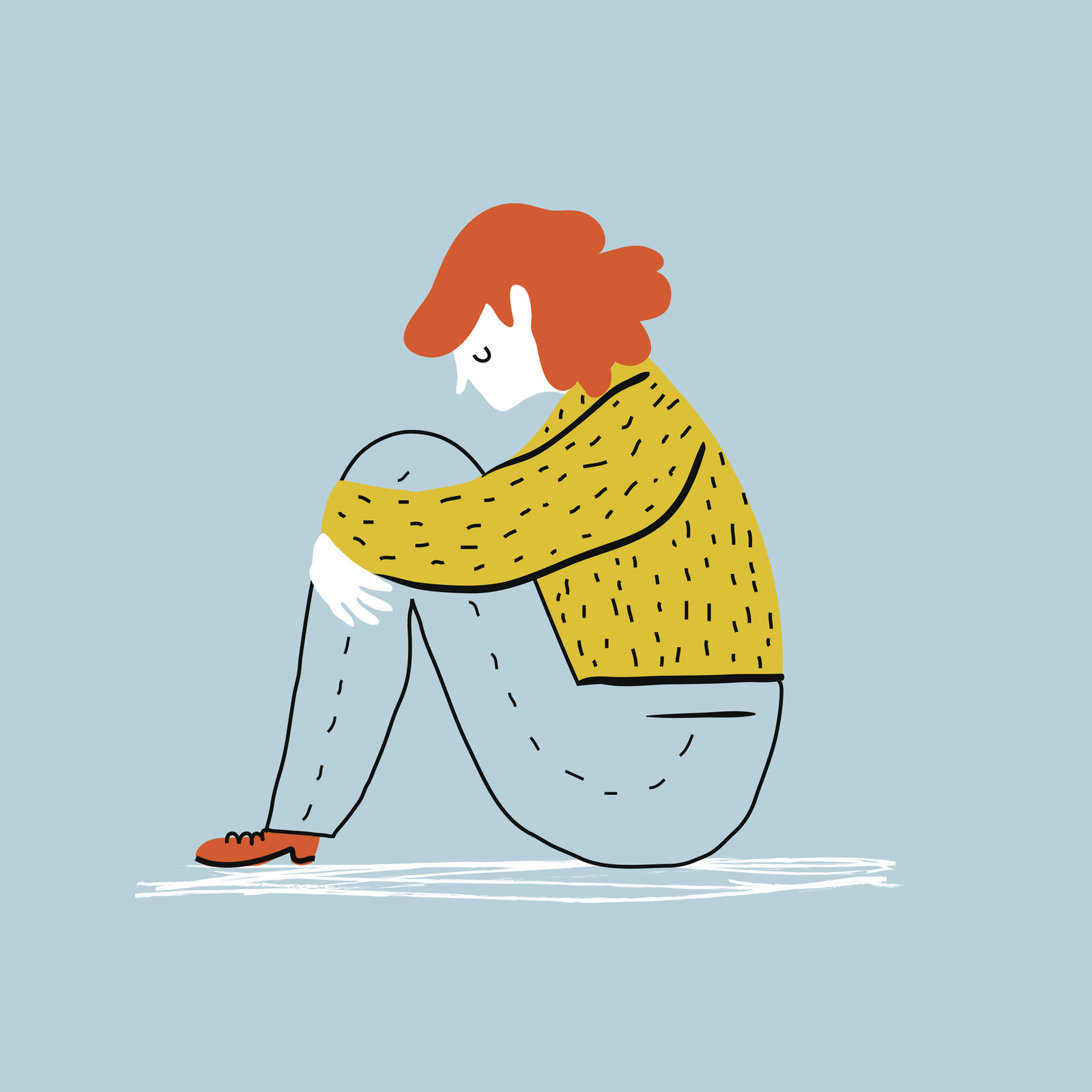BuzzFeed Brazil asked people who've undergone bariatric surgery to share what they want people to know about their surgery. Here are their stories:
Note: Responses have been translated and edited for clarity.
1. "I felt like I had gotten control of my life back, in the sense that I could once again rely on my body to do whatever I felt like doing."
I was hoping I would lose weight fast (which I actually did), but I didn't expect to gain some of that weight back (which did happen, unfortunately). I knew that I could become anemic and would have to take vitamin supplements for the rest of my life. I feel like there weren't a lot of surprises since I had gone through a specific psychological evaluation and counseling before the surgery, and I had also attended several lectures and became familiar with the experiences of people who had already done it.
Bariatric surgery was crucial in my life. I had gotten to the point where I lost mobility, and for 10 long years, I attempted to lose weight using every possible method you could think of. I felt like I had gotten control of my life back, in the sense that I could once again rely on my body to do whatever I felt like doing, without pain or other issues. —Milena Castro, 34
2. "Bariatric surgery is just one of many factors, but you're ultimately the one in charge."
I had the surgery in August 2011. I didn't experience any obesity-related conditions like diabetes or hypertension, but I did have a hernia and an ulcer as well as a fatty liver and extreme fatigue. I was hoping I could shed 65 kg (143 lbs) and that I would be happier by doing so. I imagined I would be able to go to the gym, that I would be healthier, and that I would buy some new clothes as a result of the surgery.
However, the truth is that my depression worsened due to a lack of nutrients. I still hate the gym, I lost 40 kg (88 lbs), and I've already regained half the weight I lost. Conclusion: Bariatric surgery is just one of many factors, but you're ultimately the one in charge. I don't regret doing it, but my advice to everyone would be to exhaust all possibilities before going through with it. Go to therapy, change the way you view food, get to the root of the problem. Weight-loss surgery can't perform miracles. —Manuella Tavares, 28
3. "I get so sad just thinking that I wouldn't have needed to go through with surgery if there wasn't so much size discrimination in the medical profession itself."
It's absolutely necessary that you really evaluate what your actual motives for going through with surgery are. I was convinced that it was for my health, but today I am aware of the pressure that I was under from people in my social circle, and from what doctors said about my size and not my high cholesterol.
What I had hoped would happen did in fact happen: I stopped being a 'fatphobe.' The way I was treated pre-surgery was VERY different from what it's been like post-surgery, but that didn't make me any happier. I've lost 50% of my hair and have experienced dumping syndrome. However, the possible side effect that was never mentioned was in fact the worst side effect for me: I lost three teeth due to low calcium absorption, which happened to be the only supplement I wasn't prescribed. Since I experienced bone loss, the dentist is having trouble getting implants done. It's not just a cosmetic issue.
For these reasons and others, life completely changed after surgery. It totally transformed me. I opened myself up to a new relationship with myself. But I get so sad just thinking that I wouldn't have needed to go through with surgery if there wasn't so much size discrimination in the medical field itself. And if I hadn't spent my entire life from adolescence on being bullied constantly because of my body, I might have looked elsewhere for solutions.
I wish that I had my current understanding of the situation back then. In that case I wouldn't have had the operation. At the same time, I only got to this level of awareness because of all the introspection I did post-surgery. Unfortunately there's no way to know. The surgery is part of my story. —Erica Marques, 37

4. "I've seen how unfair the world is and how judgmental people are to those who are fat."
My surgery in 2011 was recommended to me on the basis of my health, since I was morbidly obese. I expected to no longer be able to eat bigger portions, but nowadays, I eat pretty much anything and in moderate amounts (a big deal for someone who's had bariatric surgery, not such a big deal for someone who's never had the surgery). It turns out the stomach actually adapts and can even grow back — hence the risk of putting all that weight back on.
I lost 65 kg (143 lbs), and I've been on both ends of the scale, so to speak. I've seen how unfair the world is and how judgmental people are to those who are fat. Today I'm able to buy clothes while out shopping, and my self-esteem has improved immensely. I've started to take care of myself more and care about what I eat. Through the years, I've put on 22 kg (48 lbs) and have had to lose weight like someone normally would without bariatric surgery, with diet and exercise.
Losing weight is the best way to go for various reasons. The thing is though, your problems won't be solved by seeing a smaller number on the scale. You have to accept and love yourself regardless. —Giovanna, 29
5. "My self-esteem came back, I have greater control over what I eat, and I actually feel like exercising."
I had my surgery in 2015 in hopes of changing my metabolism and reducing my chances of getting diabetes, since there is a family history of diabetes. In fact, I lost weight and my blood sugar is in check, but what bothers me is having the 'dumps' and having difficulty digesting certain foods, including lactose.
In my opinion, the impact the bariatric surgery had on me was the best one possible. My self-esteem came back, I have greater control over what I eat, and I actually feel like exercising. But I would ask anybody who may be thinking of having the surgery: are you sure you want to change your eating habits and exercise? You will lose a lot of weight fast, but maintaining it and sticking to a routine depends on you, and you alone. —Juliana, 30
6. "I thought that surgery would completely change my habits and that I wouldn't put on weight anymore, and that it would be easy to stick to a healthy routine."
I was always obese. I started packing on the pounds when I was five, and I have a family history of obesity. My entire childhood and adolescence consisted of going to doctors and dietitians in an attempt to lose weight, but I never managed to do so. Having bariatric surgery was a decision made after years of frustration.
I believed that I would lose weight quickly and that I'd be super thin. In fact, my quality of life has really improved, my mood is better, and I don't have any health problems. My weight loss was slow-going however. I lost 48 kg (105 lbs) with lots of effort, by following a strict diet and engaging in plenty of physical activity. But I didn't reach my goal, which was to get down to 62 kg/136 lbs (my lowest was 66 kg/145 lbs). I thought that surgery would completely change my habits and that I wouldn't put on weight anymore, and that it would be easy to stick to a healthy routine. But the truth is that your mind betrays you. It's always trying to sabotage you. Obesity isn't an illness that can be cured. We must monitor ourselves at all times.
Bariatric surgery was the best choice I've made in my life. No regrets whatsoever.
It helped me to come out of my shell. I've become more talkative, and I've rediscovered enjoyment in certain things I had stopped doing out of embarrassment or fear of being judged by others. Today I am much more secure and content, I no longer hold back on anything because of my body — which is far from perfect, by the way. —Anonymous, 25

7. "Surgery only works for those who really change their lifestyle."
"I hoped I would lose the weight and never have to worry about the associated health issues or the weight gain again. It wasn't that easy. I learned that I'm obese; and always will be if I neglect my diet. After I stopped losing weight, I gained a little back. That showed me that gaining weight is more than possible after bariatric surgery, which REALLY made me change my mind. I understood that I needed to change my diet and eating habits (in my case, a big change).
But you gotta admit that with surgery, changing your diet becomes a whole lot easier. That's because the stomach is smaller and there's not a lot of room for food. You get sick, throw up, and feel a lot of discomfort. I have had to interrupt dinner with friends because I got sick. Simply put, I don't want to feel that way ever again. With that in mind, anyone who has bariatric surgery must have limits. Before, I didn't have any limits because there was room for everything. Now, I know when I'm getting to that point. With regard to health issues, the fact is everything has improved. My test results are impeccable. I take vitamins every day and have been keeping myself at my healthiest. I'm not stick-thin, but I'm healthy. And I want to stay that way.
I'm still afraid of the surgery's impact on me as I get older, but, I feel great and much healthier thus far. I've learned to eat right, and I truly value food. I've had problems with my hair (it fell out a lot as a result of the surgery, and it hasn't completely gone back to normal) plus problems with my teeth (I've chipped quite a few... managed to get them fixed, but I'm afraid I'll chip or break them again so I prefer to stay away from hard foods). But generally speaking, my mood is better, I exercise regularly, I enjoy going out (I used to hate going to the beach but now I can't get enough), I enjoy shopping for clothes again, I'm not hung up on my body's imperfections (they're still there, obviously), and my health is fantastic. I'd do it all over again if I had to (though I hope to never have to ever again, of course). —Anonymous, 39
8. "As of today, almost four years out, I've regained ten kilos (22 lbs), but I don't make a big deal out of it."
"I've met a few people who've hastily pursued surgery for purely cosmetic purposes. Giving up chocolate for the weekend because you're on a diet is one thing. Learning to live on just one cup of coffee is SOMETHING ELSE ALTOGETHER. You really have to prepare yourself so you don't go crazy, because your brain is programmed to down a full plate of food. Each day of the first post-op phase is a real achievement. You will get sick of sports drinks and coconut water. And what's more, you have to take all the care in the world just to avoid developing anorexia or orthorexia.
Putting some weight back on is normal because your body is in shock from losing so much weight all at once. After adjusting your body can relax a little. As of today, almost four years out, I've regained ten kilos (22 lbs). But I don't make such a big deal out of it because I still believe myself to be much better than before, and a lot healthier. —Paula Foit, 28
9. "The will to get shit done, meet new people, see new places — basically, my will to live has come back."
"I've had various health issues associated with obesity: fatty liver, sleep apnea, gastroesophageal reflux disease, prediabetes, anxiety, depression, and dark spots all over my body. The fact that I didn't sleep well prevented me from having the energy to work out, and because of my anxiety over gaining weight, I would eat out of desperation, which gave me reflux. To put it bluntly, it was a vicious cycle that wreaked havoc on my health. The only way out was bariatric surgery.
I thought that I would never be able to eat properly again, that I was going to vomit every time I ate fatty foods, or that I'd no longer have any tolerance for alcohol, and that I'd have to live on soup. What actually happened was the exact opposite. I avoid fatty foods for my own good, with an emphasis on organic food. But I still have good tolerance for alcohol, am able to eat fatty food if I want, and nothing bad happens if I do. Put simply, balance is the key for a bariatric patient.
As a result, EVERY aspect of my life has changed: self-confidence, appearance, health (all the health issues I mentioned have gone away, and my anxiety is under control with therapy), and my will to live. The will to get shit done, meet new people, see new places — basically, my will to live has come back." —Leonardo Lopes Olivares, 29

10. "After lots of therapy, I've come to understand that I don't have to live up to a certain standard. I just have to feed myself and exercise so that my body can attain the ideal that's right for me."
"Going under the knife is scary, so do as much research as possible, participate in weight loss support groups, and don't skip out on the pre-op phase. Psychological monitoring before and follow-up afterwards are super important, and don't let yourself be swayed by others.
Bariatric surgery completely changed my routine. Nutrition became important to me, as did physical activity. Today I see the life that obesity took away from me, the things I wasn't able to do, the experiences I was deprived of because of it.
I lead a normal life, I don't eat a lot, but I'm on a balanced diet and can eat anything. After lots of therapy, I've come to understand that I don't have to live up to a certain standard. I just have to feed myself and exercise so that my body can attain the ideal that's right for me. Today, I may not be ripped, but I'm slim, and that's alright. I'm healthy and feel good, which is all that matters. —Gustavo Dias, 30
11. "To me, surgery was a 'lazy' choice, until a doctor recommended it and I started doing research on the procedure."
At 23, I experienced the symptoms of a stroke on two occasions. I always had reservations about surgery and believed it just wasn't for me. To me, surgery was a 'lazy' choice, until a doctor recommended it and I started doing research on the procedure. I had a consultation with a local surgeon, and a year later (it took me a while to decide), I had the surgery.
I expected to lose weight of course, but not as quickly as I did. The hope was to shed 60 kg (132 lbs) within two years. Within a year of the surgery, I had lost all that weight. I went into surgery weighing 140 kg (308 lbs).
Without a doubt, bariatric surgery transformed my life. My will to live has increased post-surgery, and nowadays I really feel like taking advantage of all the opportunities this world has to offer. Following the procedure, I feel more upbeat, in a better mood, and I have more willpower to pursue my goals. —João Guilherme Xavier, 26
12. "Sometimes we think the problem is our body, when in actuality, it's in our head. And you can't operate on that."
"I expected it to be difficult, but not as hard as it really was. Eating is such an ingrained habit, and people can't imagine just how much you miss it, even more so when you can't eat. While everyone else is eating, you're consuming liquids. Even if it's something you don't like, you feel like eating it. After a month on a liquid diet, my first 'feast' was a spoonful of mashed potatoes and a spoonful of ground-up chicken. Nectar of the gods I tell ya! I was thankful for each and every mouthful of that mush, and this process really helped me to appreciate food.
Sometimes we think the problem is our body, when in actuality, it's in our head. And you can't operate on that. That's why it's important to be surrounded by professionals." —Camila Castro, 26
Also see...
This post was translated from Portuguese.

